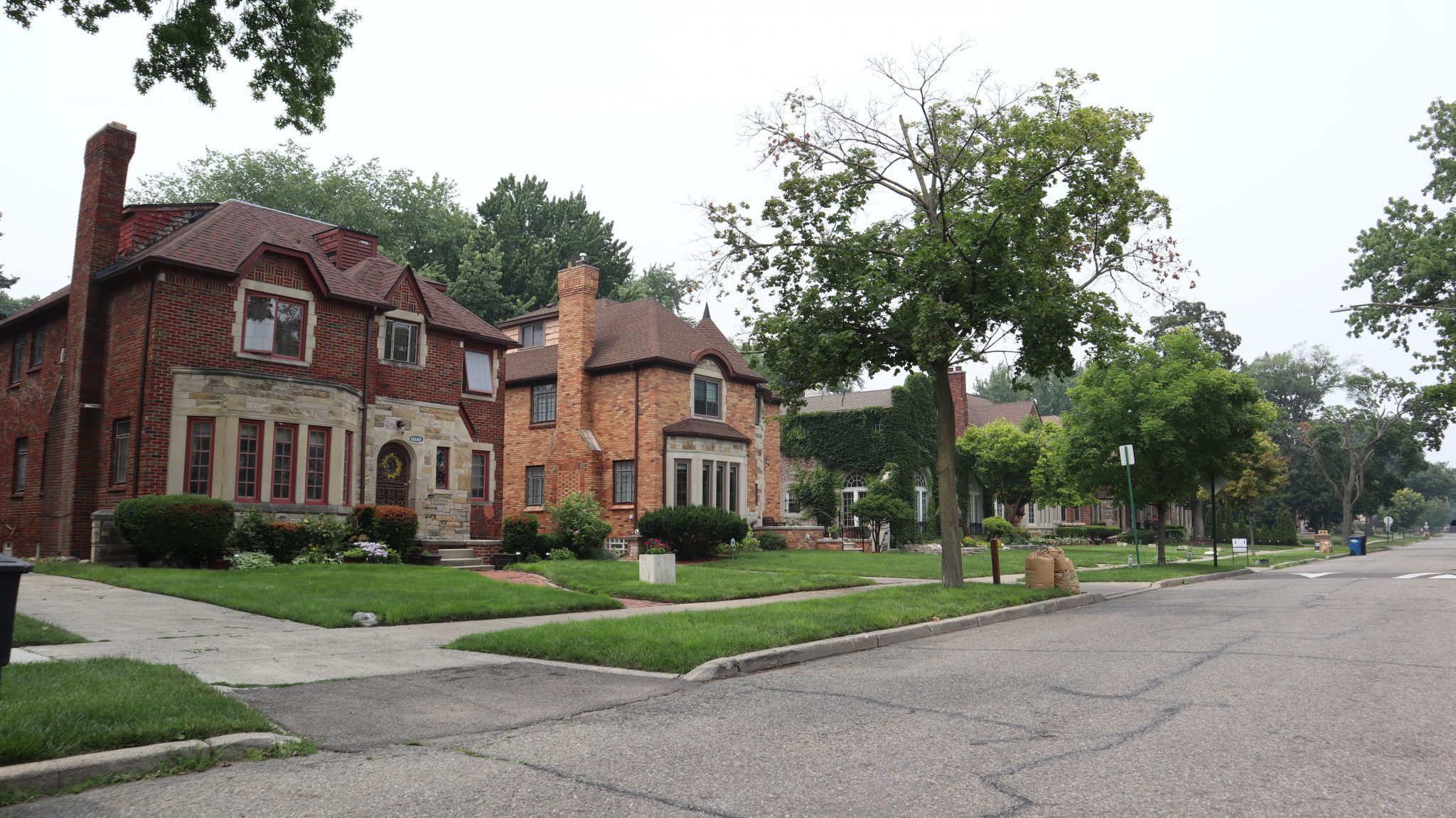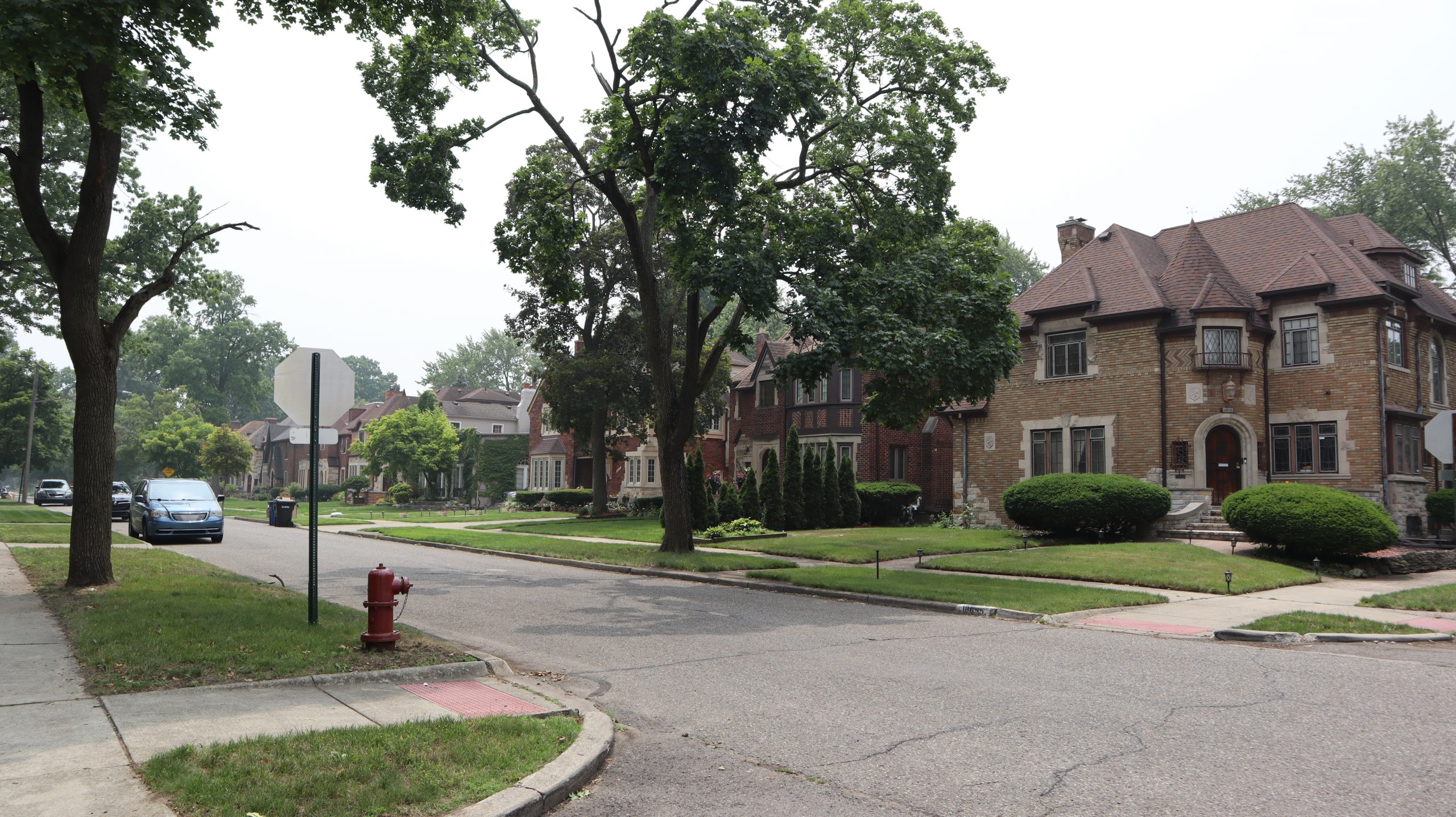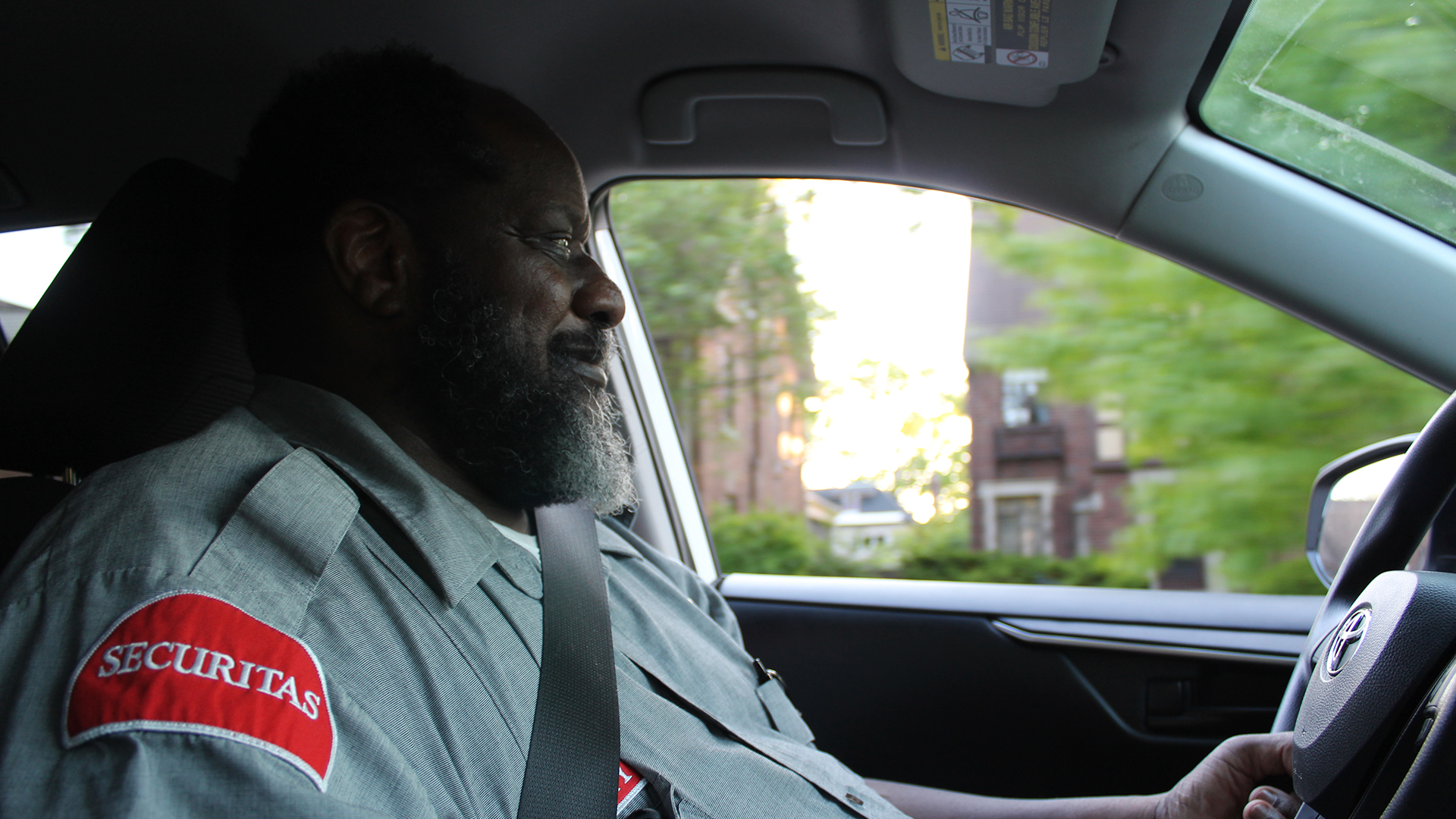Crossing the Lines: University District is Detroit’s fourth neighborhood to add security fee
The University District, Palmer Woods, Sherwood Forest and the city’s Golf Club neighborhood all have Special Assessment Districts.

This story is part of WDET’s Crossing the Lines: Live6 series, exploring the neighborhoods around the intersection of Six Mile Road and Livernois Avenue. See more Crossing the Lines coverage »
It was in the late 2000s in Detroit when Sidney Bailey III had just pulled up to his University District home after grocery shopping.
“And while I was unloading one of the trips, two gentlemen [showed up]. One popped up on one side of the porch, [one] from the other,” Bailey recalls.
The men brandished a gun and proceeded to rob Bailey while he stood there holding a bag of groceries. The incident made him feel unsafe in his own neighborhood.
“Even though our community has historically had very low rates of crime, any is too much. Especially if it happens to you,” Bailey says.
Bailey started getting involved with overseeing the University District Community Association’s private security patrol, which the neighborhood has had for decades. At the time, residents paid for the patrol out of pocket, but the fee wasn’t mandatory. According to Bailey, this meant “everybody benefited, not everybody paid.”
Then a solution came to Bailey in the form of a 2014 Detroit ordinance that allowed for Special Assessment Districts in the city.
Special Assessment Districts
“A special assessment district is an area in which a designated neighborhood organization can petition the City of Detroit to allow them to offer enhanced security, snow removal, and mosquito abatements in their particular area by implementing a fee,” says Alvin Horhn, the deputy chief financial officer and assessor for the City of Detroit. The districts are allowed by state law, but the city ordinance lays out the local process.
“It requires that at least 51% of the property owners in the area agree to create a special assessment district. They have to sign a petition,” explains Horhn.

By early 2022, three such districts had come to exist in Detroit. They are located in Palmer Woods, Sherwood Forest and the Detroit Golf Club neighborhood. The University District hoped to become the fourth. Eighty-one percent of property owners signed a petition in favor of the special assessment, but that means there were still some residents opposing the idea.
“We elected the city council and the mayor to provide services to the entire city of Detroit,” University District resident Evelyn Williams said at a public hearing last year. “And I think that we are already paying for those services through our property tax.”
Residents like Williams felt the city should do a better job with the funds they were already collecting. Critics were also worried that the required $175 annual fee for their neighborhood would be too much for some senior homeowners. A few felt that the private security would be impotent since the guards would be unarmed. Conversely, some residents were opposed to policing as a way to thwart crime.
Despite the opposition, Detroit City Council ultimately approved the Special Assessment District for the University District in June 2022. It allowed the neighborhood to pay for additional snow maintenance and to increase its private security patrol to 84 hours per week, up from 42 weekly hours.
Ride-alongs with University District security patrols
Michael Thomas is one of the two guards hired to patrol University District. His workdays usually consist of 12-hour shifts starting at 6 p.m. On a warm spring evening, Thomas greets residents from the window of his patrol vehicle as he passes them on the street. The sun peeks through the trees and the brick houses that fill the neighborhood. As Thomas patrols, he passes a group of people celebrating a graduation party in a front yard, people pushing strollers down the sidewalk and kids riding bikes in the street.

In addition to patrolling, Thomas’ duties include swinging by houses when alarms go off and paying special attention to residents’ homes when they’re on vacation by doing things like putting any flyers in the mail slot. He also responds to noise complaints and, when called, escorts residents to and from their cars late at night or early in the morning.
“Every resident in the community, they have a number. They can call me if they see anything,” Thomas shares.
I rode with the security guard for about 90 minutes during his shift. There was only one moment of action.
We were driving along when, suddenly, a small creature ran out in front of the patrol car.
“Oh squirrel,” Thomas exclaimed.
He tapped his patrol car brakes and the squirrel ran off. Thomas was relieved it got away.
On an average night, zero incidents take place in the University District. Proponents of the Special Assessment District hope the additional patrolling will keep it that way.
Are Special Assessment Districts fair?
Some critics worry that Special Assessment Districts are an option for affluent neighborhoods — not for lower-income communities.
“Special assessment districts weren’t created just for high-end neighborhoods, but the reality is they will exist in neighborhoods which have a higher percentage of homeownership,” Horhn says.
Sidney Bailey insists lower income neighborhoods could also adopt Special Assessment Districts by opting to pay a smaller fee on their tax bills to purchase security cameras or increased lighting.
The way Bailey sees it, creating a Special Assessment District is fair because it’s an exercise in democracy, as shown by Palmer Woods, Sherwood Forest, the Golf Club Neighborhood, and now the University District.
“If most of the people want to do a thing — and it’s legal, there’s a process and it’s not hurting anybody acutely — then that’s what the group should do.”
Trusted, accurate, up-to-date.
WDET strives to make our journalism accessible to everyone. As a public media institution, we maintain our journalistic integrity through independent support from readers like you. If you value WDET as your source of news, music and conversation, please make a gift today.
